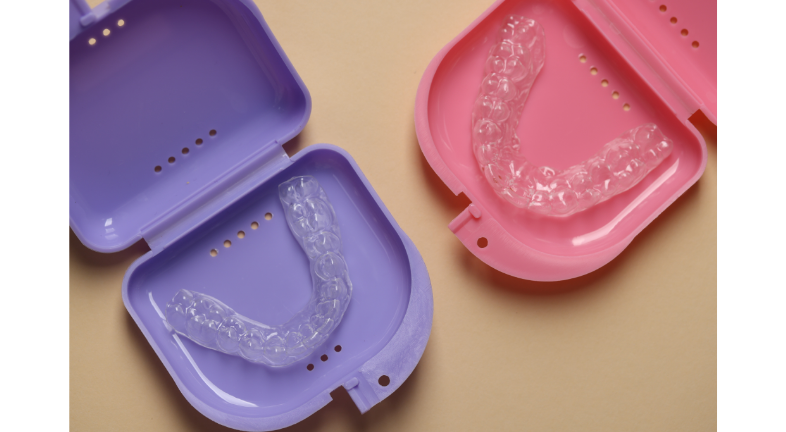
When it comes to dental care, most of us know the usual routine. We should see our dentist and hygienist once every six months, or once a year at least so that they can survey the overall health of our mouth. This appointment also provides the opportunity for them to diagnose any problems, schedule any further treatment, or give advice regarding lifestyle changes that could benefit your dental health. This is fine and simple to schedule in. But what if you experience sudden changes to your dental and oral health and wellbeing that need to be catered to quickly? This is when you may find that you are in a dental emergency. It’s absolutely essential that you know what constitutes a dental emergency and how to deal with a dental emergency if you do fall victim to one. Here’s a little information on the subject, along with a brief guide on how to deal with some of the most common dental emergencies that people experience!
According to American Family Physician, roughly 22 percent of people experience dental or oral pain every six months. So, dental and oral pain is relatively common. But when do they constitute an emergency? Being able to determine between something that can wait and something that needs to be attended to immediately can ensure that you get the right treatment and that you only go to an emergency dentist or the ER department when necessary. If you have a dental problem and are unsure as to whether it’s an emergency or not, it’s a good idea to ask yourself the following questions before taking action.
In short, dental emergencies involve severe pain, swelling, bleeding, loose teeth or tooth loss. All of these situations indicate that you need to seek help immediately. Contact your dentist’s office, an emergency dentist, or ER.
Of course, there are plenty of dental situations that do not constitute an emergency. In fact, the vast majority of dental problems are not emergencies, and you can wait until your dentist has a free appointment before tackling them. All in all, you need to look at the severity of the situation you are facing. If you have fragmented a tooth and it has left a sharp fragment in your mouth or is causing significant pain, you have an emergency. If you fragment your tooth but it doesn’t hurt and you don’t have any sharp fragments in your mouth, you can probably wait to see your dentist the next day. While toothache may be inconvenient, it is only an emergency if it does not have an abscess and is not severe. If it is manageable, you can wait for an appointment the next day. If you’re ever in doubt, it’s always worth ringing your dentist and asking for some advice. They may be able to advise you over the phone, or they may call you in for a face to face consultation to determine the severity of your issue.
Common Dental Emergencies
Here are some of the most common dental emergencies faced by people, alongside a little information on how to deal with them effectively.
A Cracked or Broken Tooth
There are a number of issues that can cause your teeth to crack or break. Common culprits include poor oral hygiene (which can lead to decay and weakness), dental trauma (which can directly crack or break the tooth through force) or simply biting down on something too hard. If you’re prone to grinding your teeth at night, this can also cause your teeth to crack or break. Often, cracks and breaks are sudden, so you’re not prepared for them. Depending on how close to the root the crack or break gets, you could experience a lot of pain associated with this incident. Regardless, this is generally considered a dental emergency. Make sure to contact your dental practice as soon as possible, noting that you need an emergency appointment rather than a regular checkup. They should be able to fit you in quickly or refer you to a hospital if necessary.
Severe or Constant Tooth Pain
Teeth and braces are closely connected in the realm of orthodontics, where braces play a pivotal role in aligning misaligned teeth. The process of orthodontic treatment, involving braces, not only enhances the aesthetics of one’s smile but also contributes to overall oral health. However, it’s essential to recognize that braces can sometimes lead to temporary discomfort and adjustments in jaw alignment and muscle function. This is where physiotherapy can become beneficial. Physiotherapists can offer exercises and techniques to alleviate discomfort associated with braces, helping patients maintain proper jaw mobility and muscle function throughout their orthodontic journey. This collaborative approach between orthodontics and physiotherapy like mhp-bonn.de ensures that patients not only achieve a beautifully aligned smile but also maintain optimal oral health and comfort throughout their treatment.
A Knocked Out Tooth (Avulsed Tooth)
If you knock a tooth out, this is referred to as an avulsed tooth. Adults should not lose their teeth. These teeth should be permanent and, if one of your teeth does get knocked out, you need to contact a dentist straight away. Leaving the tooth could lead to infection and minimizes your chances of saving it. By getting emergency dental help, you maximize your chances of saving the tooth. Make sure to keep your tooth in a small container containing water, milk or some salt. Head straight to an emergency department or your emergency dentist within one hour. If this takes too long, or if the tooth is lost, there’s little chance the tooth can be saved. However, you could find that dental implants are a good alternative option for you.
A Lost Filling
The majority of adults have at least one filling. But what many of us don’t know is that tooth fillings are unlikely to last forever. Though they may be pretty secure when they’ve been fitted, they can begin to come a little loose after years of daily use. You’ll likely notice straight away if one of your fillings falls out. You’ll likely spit the filling out, or feel it in your mouth. You may also notice sensitivity in your tooth when you eat or drink. You might experience a feeling of pressure in your tooth when you eat. Make sure to contact an emergency dentist if your filling comes out. This will allow a professional to replace your filling as soon as possible, reducing sensitivity and pain and minimizing chances of infection.
A Dental Crown Falling Out
Dental crowns are another common dental procedure that many people have had carried out. But like fillings, they aren’t necessarily permanent. Sometimes, cavities can form under the crown, causing the crown to fall out. This is another dental emergency that you need to contact your dentist about immediately. Again, they’ll be able to replace your crown quickly, reducing chances of infection and minimizing further damage to your tooth.
Of course, there are various other dental situations and dental emergencies that you might experience at some point or another. But these tend to be some of the most common. Hopefully, some of the above information will help you to correctly identify a dental emergency and to take the right course of action for the situation that you are facing. If you are unable to reach your dentist, remember that ER is always an option for emergencies. What’s most important is that you get the help you need as quickly as possible!
Curated the best for your knowledge
.webp) Does Insurance Cover Night Guards in the UK?
Does Insurance Cover Night Guards in the UK?Night guards are commonly recommended for people who grind or clench their teeth, suffer from jaw pain, or show signs of enamel wear. If you’ve been advised to wear one, the next question is often financial rather than clinical: are night guards covered by insurance in the UK?
Read More%20(1).webp) Signs Your Athletic Mouth Guard is a Good Fit
Signs Your Athletic Mouth Guard is a Good FitWhen you step onto the field, court, or mat, your focus should be on performance, not on whether your mouth guard will slip, hurt, or distract you. An athletic mouth guard is more than a piece of sports equipment. It is a protective barrier between confidence and injury. Yet many athletes wear mouth guards that do not fit properly and never realize the risk they are taking. A well-fitted mouth guard protects your teeth, jaw, and even your brain from impact-related injuries. This guide walks you through every clear sign that your mouth guard fits the way it should. By the end, you will know exactly what to look for and why proper fit matters more than most athletes think.
Read More Top 5 Clear Aligner & Retainer Cleaners: Keep Your Smile Fresh
Top 5 Clear Aligner & Retainer Cleaners: Keep Your Smile Fresh Clear aligners and retainers are designed to improve your smile quietly and comfortably. But because they sit tightly against your teeth for hours every day, they also collect saliva, plaque, bacteria, and food residue. Without proper care, that buildup can lead to bad breath, cloudiness, stains, or even gum irritation. Cleaning your aligners and retainers isn’t just about appearance. It’s about hygiene, comfort, and protecting the progress you’ve already made. The good news is to take care of clear aligners you don’t require complicated tools or expensive products. What matters most is choosing the right aligner cleaner and sticking to a routine that fits your lifestyle. This guide breaks down the top 5 clear aligner and retainer cleaners, explains why they work, and shows you how to use them properly so your trays stay clear, fresh, and comfortable from day one to the last.
Read MoreQuick Links

Heading